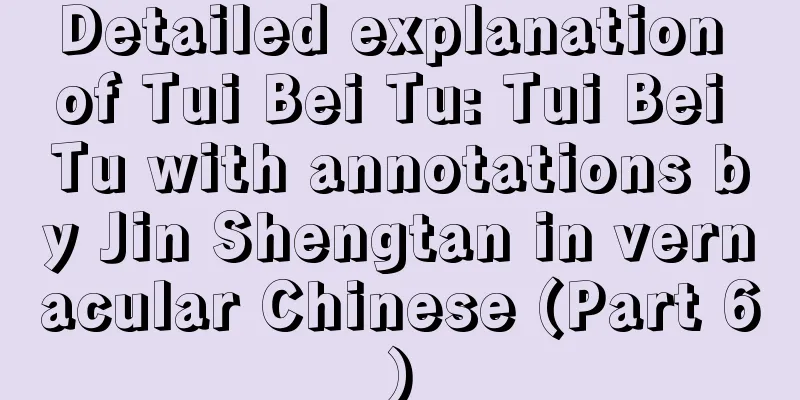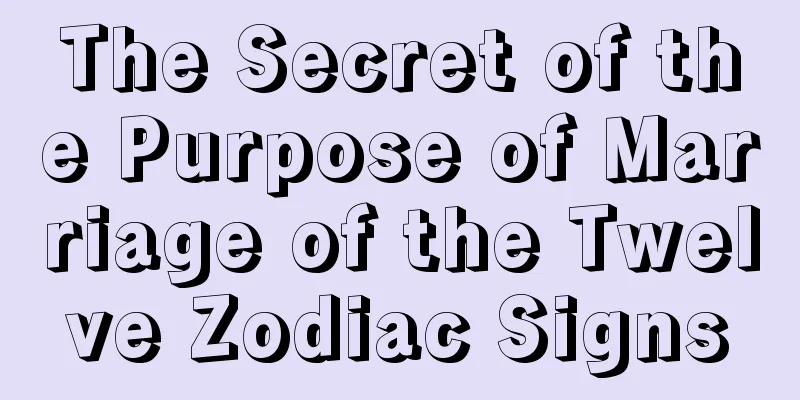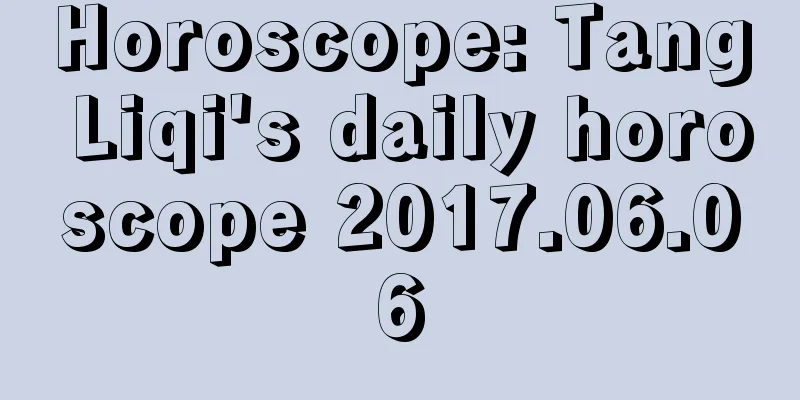Detailed explanation of Tui Bei Tu: Tui Bei Tu with annotations by Jin Shengtan in vernacular Chinese (Part 6)

|
The very famous and mysterious prediction book "Tui Bei Tu" has frightened rulers of all dynasties and has been listed as a banned book. Next, please see the vernacular version of Tuibei Tu with annotations by Jin Shengtan: detailed explanations of the 31st to 36th images. Detailed explanation of Tui Bei Tu: Tui Bei Tu with annotations by Jin Shengtan in vernacular Chinese (Part 6) The 31st Episode: The Sino-Japanese War (Wei Zhongxian Rebellion) Prophecy The 32nd symbol Yiwei (King Chuang destroyed the Ming Dynasty) Prophecy |
<<: Horoscope: Tang Liqi's daily horoscope 2017.05.10
>>: Horoscope: Susan Miller Daily Horoscope 2017.04.26
Recommend
Girls with the surname Wan have poetic and beautiful names
A name is a birth gift given to us by our parents...
Detailed explanation of the fortune of people born in the year of the Ox in 2011: how the Ox will run
People born in the Year of the Ox are gentle and ...
Who is the most wasteful among the 12 zodiac women? The wastefulness index of the 12 zodiac women is revealed
Among the twelve zodiac signs, who is the most wa...
What is the nemesis of Sagittarius? Sagittarius is destined to be the nemesis in three areas.
What zodiac sign is Sagittarius’ nemesis? In Chin...
Horoscope: Susan Miller Daily Horoscope 2016.12.07
Remember one thing today, you can only rely on yo...
Susan Miller Daily Horoscope 2018.01.28
With Mercury, the ruler of Virgo, clashing with U...
Capricorn July 2012 Horoscope, Love and Health Index Preview
Capricorn's fortune in July 2012: Capricorn&#...
Pu surname girl's name with a perfect score of 100
A name is a birth gift given to us by our parents...
The face of a prosperous husband: what kind of woman can bring prosperity to the husband
Judging from the various appearance features of w...
Susan Miller's Gemini Horoscope for October 2018
The past month has been marked by a heavy workloa...
Dreaming about a reservoir full of water Dreaming about a reservoir full of water
What does it mean to dream about a reservoir full...
Proverbs about Bailu 2017 Bailu Agricultural Proverbs Selection
What are some proverbs about Bailu? "Bai Lu&...
Nice girl's name with the surname Mi
A good name not only implies auspiciousness and g...
Susan Miller's Leo Horoscope for May 2018: Uranus represents surprises
This month is special for everyone, but doubly so...
A good name for a girl with the surname Ke that has an elegant meaning
To select good names for girls with the surname K...









